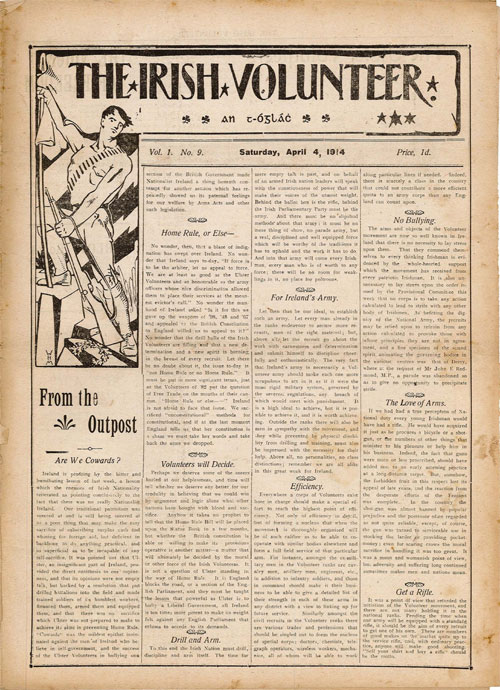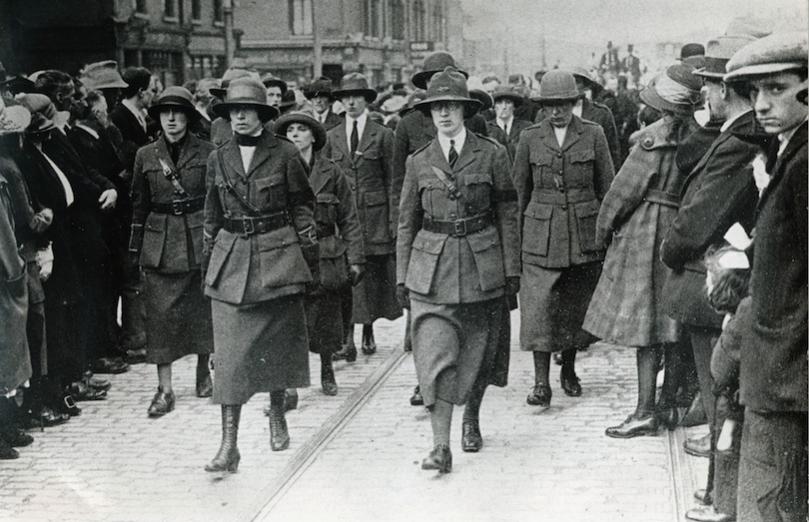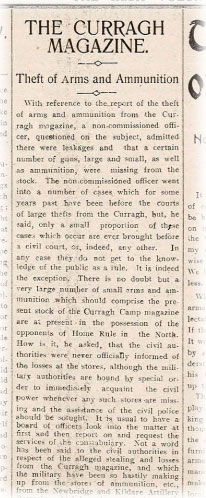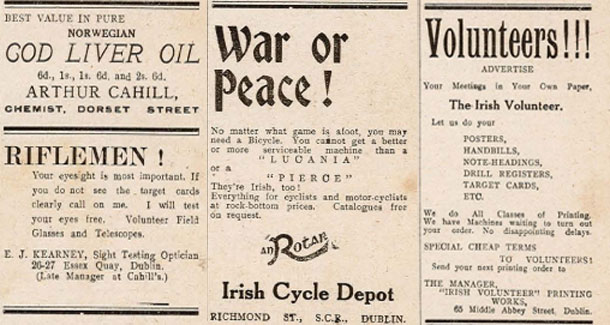4 April 2014
The Irish Volunteer, Volume 1 - Number 9
This issue was first published 4th April 1914

Tucked away on the back page is a notice for a public meeting of the newly-formed Cumann na mBan in Wynn’s Hotel.
The Irish Volunteer – Óglach na hÉireann (An t-Óglác) of Saturday 4 April 1914 has 16 pages packed with news of the growth of the Óglaigh na hÉireann (Irish Volunteers) the length and breadth of Ireland, from Belfast to Derry, Dublin, Tipperary, Cork and Limerick as well as London.
Tucked away on the back page is a notice for a public meeting of the newly-formed Cumann na mBan in Wynn’s Hotel.

There’s also a piece “By the Times Military Correspondent” on the unionist Ulster Volunteers and the professional military organisation behind them, including “professional soldiers” from the British Army as well as army reservists and the unionist Establishment.

It reports on “the theft” of arms and ammunition from the Curragh Magazine
Advertisements for military books and rifles pepper the paper, capitalising on the front-page editorial urging Volunteers to “Sell your shirt and buy a rifle.”
A “Mauser Magazine Carbine” would set you back £2 2s or you could get “Latest pattern regulation officers’ sword, complete with two scabbards, leather and steel, cost £5 5s – only £1 10s.”
Optician E. J. Kearney was ahead of his time (and Specsavers) in appealing to Volunteers: “Riflemen! Your eyesight is most important. If you do not see the target cards clearly, call on me. I will test your eyes free.”
And the Irish Cycle Depot, under the headline “War or peace!”, alerts Volunteers: “No matter what game is afoot, you may need a bicycle.”

You can now read these fascinating insights into Irish revolutionary history with an online subscription to An Phoblacht for just €10 per year. This includes a digital copy of each new edition of the paper and Iris magazine, access to our digitised historic archives as well as copies of The Irish Volunteer.
Sign up now
Follow us on Facebook
An Phoblacht on Twitter
Uncomfortable Conversations

An initiative for dialogue
for reconciliation
— — — — — — —
Contributions from key figures in the churches, academia and wider civic society as well as senior republican figures




